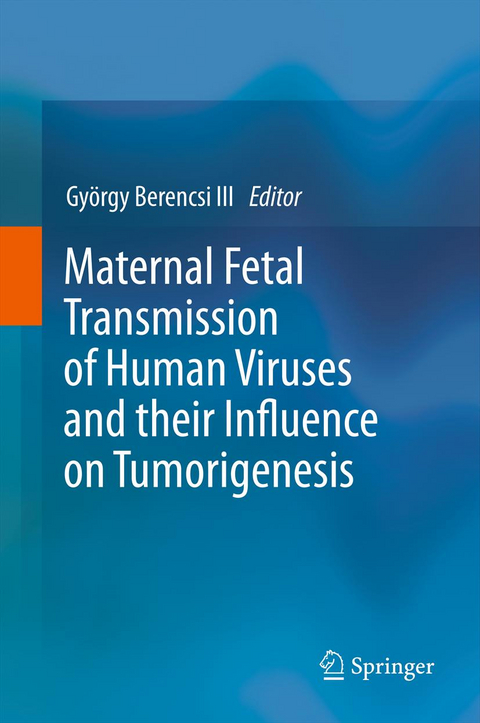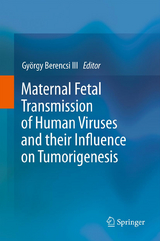Maternal Fetal Transmission of Human Viruses and their Influence on Tumorigenesis
The human foetus is separated from the maternal blood by the syncytiotrophoblast induced by endogeneous human retrovirus-encoded proteins. This barrier is a highly developed one, which suppors apical-basolateral transport of maternal idiotype and anti-idiotype IgG, IgG-virus complexes.
The selective maternal-fetal transport of epitope- and paratope-bearing entities can influence the developping fetal immune system during pregnancy.
The bidirectional maternal-fetal transfer of cells are of even more importance during pregnancy. Maternal cells with latent viruses transport viruses without impairment of fetal development. Cells with premaligant and malignant genetic transformation are also transported to the fetus. Fetal and neonatal tumours are initiated by such cells in spite of the antitumour potential of fetal organism. On the contary, the fetal cells repair maternal tissue injouries and survive in the organisms of the recipients for decades. These possess new consequences for the neonatal immunity and organ transplatation surgery.
1. Barriers of the human organism and their Achilles’ heels. - 2. Recent results on the development of fetal immune system: Self, epigenetic regulation, fetal immune responses. - 3. The role of endogenous retroviruses in the formation of syncytiotrophoblast and materno-fetal barrier. - 4. Maternal-fetal infections with human viruses. - 5. The mechanism and significance of integration and vertical transmission of human herpesvirus 6 genome. - 6. Maternal-fetal transmission of HBV. - 7. Function of maternal idiotypic and anti-idiotypic antibodies as transgenerational messengers. - 8. Polarised transfer of proteins through the syncytiotrophobalst and tissue culture cell lines. - 9. Fetal and neonatal illnesses caused or influenced by maternal transplacental IgG and/or therapeutic antibodies applied during pregnancy. - 10. Maternal-fetal microchimerism and fetal-juvenile malignancies. - 11. Maternal tumours associated with and influenced by pregnancy.
| Erscheint lt. Verlag | 7.4.2012 |
|---|---|
| Zusatzinfo | VIII, 464 p. |
| Verlagsort | Dordrecht |
| Sprache | englisch |
| Maße | 155 x 235 mm |
| Themenwelt | Medizin / Pharmazie ► Medizinische Fachgebiete ► Mikrobiologie / Infektologie / Reisemedizin |
| Medizin / Pharmazie ► Medizinische Fachgebiete ► Onkologie | |
| Medizin / Pharmazie ► Medizinische Fachgebiete ► Pädiatrie | |
| Studium ► Querschnittsbereiche ► Epidemiologie / Med. Biometrie | |
| Studium ► Querschnittsbereiche ► Infektiologie / Immunologie | |
| Schlagworte | Bi-directional Microchimerism • Fötus • Maternal-fetal Transcitosis • Pregnancy and Tumours • Transgenerational Messenger Antibodies • Vertical Transmission of HHV-6 • Virus |
| ISBN-10 | 94-007-4215-0 / 9400742150 |
| ISBN-13 | 978-94-007-4215-4 / 9789400742154 |
| Zustand | Neuware |
| Informationen gemäß Produktsicherheitsverordnung (GPSR) | |
| Haben Sie eine Frage zum Produkt? |
aus dem Bereich




